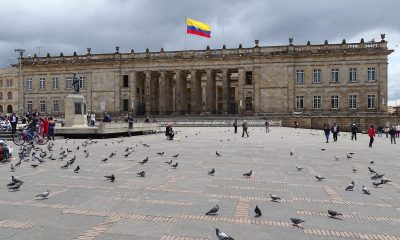World
30 Colombian LGBT activists attend training
Four day gathering is first of its kind in South American country
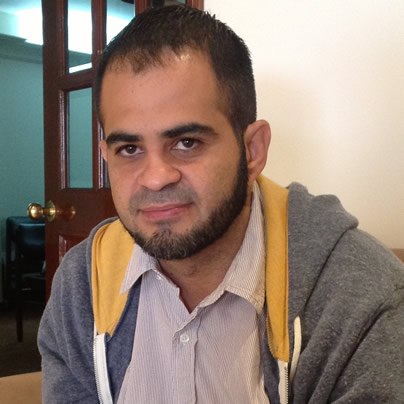
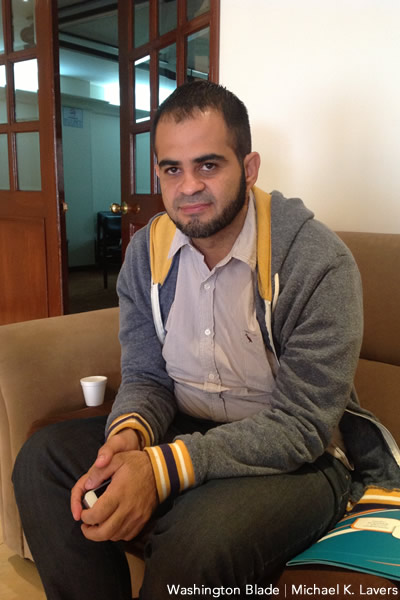
Wilson Castañeda of the Colombian LBGT advocacy group Caribe Afirmativo. (Washington Blade photo by Michael K. Lavers)
BOGOTÁ, Colombia — Roughly 30 activists from across Colombia attended a four-day training in the Colombian capital from May 30-June 2 designed to encourage LGBT people to become more involved in the country’s political process.
The program, which was coordinated by the Gay and Lesbian Victory Institute and the Astraea Lesbian Foundation for Justice, was the first to take place as part of the USAID-backed LGBT Global Development Partnership that will contribute $11 million over the next four years to advocacy groups in neighboring Ecuador and other developing countries.
Out Bogotá City Councilwoman Angélica Lozano Correa and Blanca Durán Hernández, mayor of the Colombian capital’s Chapinero district that has a large gay population, are among those who took part. They and others advocates from Colombia and the United States spoke about a variety of topics that ranged from campaigning as an openly LGBT candidate to fundraising and responding to opponents.
Lozano, Durán, Victory Institute President Chuck Wolfe, Francisco Herrero of the National Democratic Institute and Tatiana Piñeros, a transgender woman whom Bogotá Mayor Gustavo Petro in 2012 appointed to run the city’s social welfare agency, also took part in a May 30 panel on how out political leaders and officials can advance the Colombian and American LGBT rights movements. Marcela Sánchez, executive director of Colombia Diversa, a nationwide LGBT advocacy group, moderated this event that took place at a Chapinero hotel.
“We recognize the importance of strengthening capacities for those who want to become involved,” Sánchez told the Blade after the panel. “This is why we entered this alliance with the Victory Institute.”
The training, which is the first of its kind in the South American country, took place less than a month before gay Colombians can begin to legally register their partnerships.
Colombia’s Constitutional Court in 2011 ruled the country’s lawmakers have to extend the same benefits that heterosexuals receive through marriage to same-sex couples within two years. The tribunal’s deadline is June 20, but the Colombian Senate in April overwhelmingly rejected a bill that would have extended marriage rights to gays and lesbians in the South American country.
The court in 2009 ruled same-sex couples who live together must receive the same rights Colombian law affords to unmarried heterosexual couples. It also overturned the ban on openly gay soldiers in a separate ruling it issued the same year.
Colombia’s non-discrimination law that includes sexual orientation took effect in 2011.
Federíco Ruíz Mora of the Santamaría Fundación, a Cali-based group that advocates on behalf of trans Colombians, told the Washington Blade in April while he was in D.C. on a State Department-sponsored trip that he and other activists plan to seek legal protections based on gender identity and expression.
A report from the Latin American and Caribbean Network of Transgender Women (REDLACTRANS) notes 61 trans women in Colombia have been reported murdered between 2005-2011. A separate report that Colombia Diversa released last month indicates 58 of the reported 280 LGBT Colombians who were murdered between 2011-2012 were killed because of their sexual orientation or gender identity and expression.
Wilson Castañeda Castro, director of Caribe Afirmativo, an advocacy group that works in Barranquilla and other cities along the country’s Caribbean coast, told the Blade on Friday that police violence against LGBT Colombians remains a serious problem. Lozano said in a separate interview she hopes those who targeted, tortured and killed LGBT Colombians during the country’s armed conflict that began in the 1960s are held accountable in any peace settlement that could emerge from talks between the government and members of the Revolutionary Armed Forces of Colombia (or FARC in Spanish) that continue to take place in Cuba.
Participants: Political involvement helps advance LGBT rights
Those who took part in the Bogotá training said it will help LGBT Colombians become more involved in their country’s political process as the movement grows stronger and more visible.
“One of the ways to make further advance our rights as an LGBT community is to win political office,” Durán told the Blade on Saturday. “To have groups of people learn about tools, to have the skills to conduct these campaigns to me is very important.”
Lozano admitted she was a bit surprised that such a program took place in Colombia, but she described it as “positive.”
“It is incredible to me that programs like this exist,” she said.
Castañeda noted his organization, like Colombia Diversa, is non-partisan. He agreed with Durán that it remains crucial for LGBT Colombians to become involved in the country’s political process.
“We become involved in every election to present the LGBT agenda to candidates,” Castañeda said.
South America
Lesbian couple dies after man sets Buenos Aires boarding house room on fire
Suspect has been charged with homicide
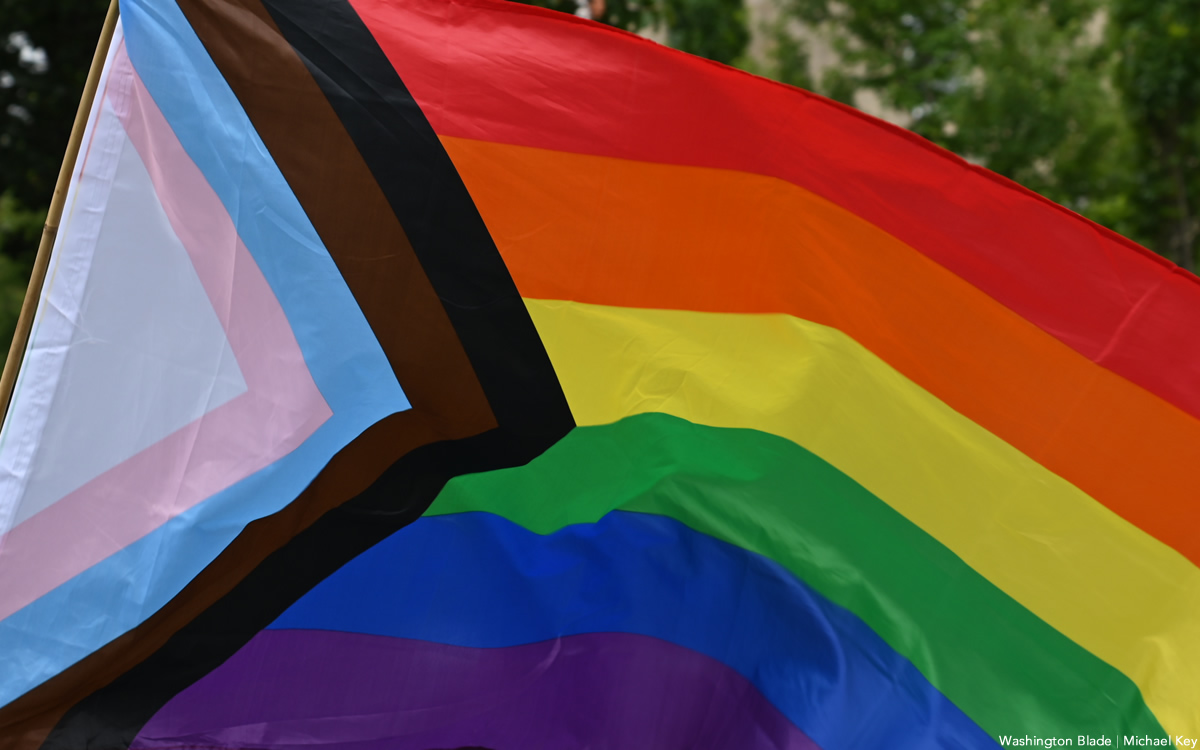
Two people died and at least five others were injured on Monday when a man threw a Molotov cocktail into the room of a Buenos Aires boarding house in which two lesbian couples lived.
The fire took place at around 1 a.m. in a house at 1600 Olavarría St., between Isabel la Católica and Montes de Ocoa in Buenos Aires’s Barracas neighborhood. The blaze forced roughly 30 people to evacuate, and the injured were taken to local hospitals.
Police say Justo Fernando Barrientos, 68, sprayed fuel and set fire to the room where Mercedes Figueroa, 52, lived together with Pamela Fabiana Cobas, 52, and Sofía Castro Riglos, 49, and Andrea Amarante, 42.
Figueroa and Cobas both died. Castro and Amarante are hospitalized at Penna Hospital in Buenos Aires.
Witnesses say the fire started on the second floor when Barrientos threw a Molotov cocktail inside the women’s room, and it soon spread throughout the property. LGBTQ organizations in Argentina have described the blaze as a hate crime because Barrientos had already threatened to kill the women because they are lesbians.
“We are in a rather complex context, where from the apex of power, the president himself and his advisors and downwards permanently instill a hate speech, instilling it when they close the (National Institute Against Discrimination, Xenophobia and Racism or INADI), stigmatizing the population that is there and the vulnerable groups,” Congressman Esteban Paulón, a well-known LGBTQ activist, told the Washington Blade.
“All this is generating a climate of violence,” he said. “The fact that it happened in the city of Buenos Aires, which is terrible … has to be investigated.”
Paulón said President Javier Milei’s government has installed in the public discourse speeches and actions against the LGBTQ community that have provoked more violence based on sexual orientation and gender identity.
“All that is installed … and then there are people who fail to make a mediation of that, that fail to make a critical analysis of that and can end up generating an act of hatred like this, which is tragic and that already took the lives of two people,” he said.
The Argentine LGBT+ Federation on social media said it was looking for the victims’ families and friends, but has yet to be able to connect with them.
“We are going to stand by them, making ourselves available for whatever they and their families need, and we will closely follow the court case so that there is justice,” said the organization. “But we cannot fail to point out that hate crimes are the result of a culture of violence and discrimination that is sustained on hate speeches that today are endorsed by several officials and referents of the national government.”
100% Diversidad y Derechos, another advocacy group, demanded the investigation address the attack “with a gender perspective and as motivated by hatred towards lesbian identity.”
Barrientos has been arrested, and will be charged with murder. Activists have requested authorities add discrimination and hate provisions to the charges.
Canada
Prominent Ugandan activist asks for asylum in Canada
Steven Kabuye stabbed outside his home on Jan. 3
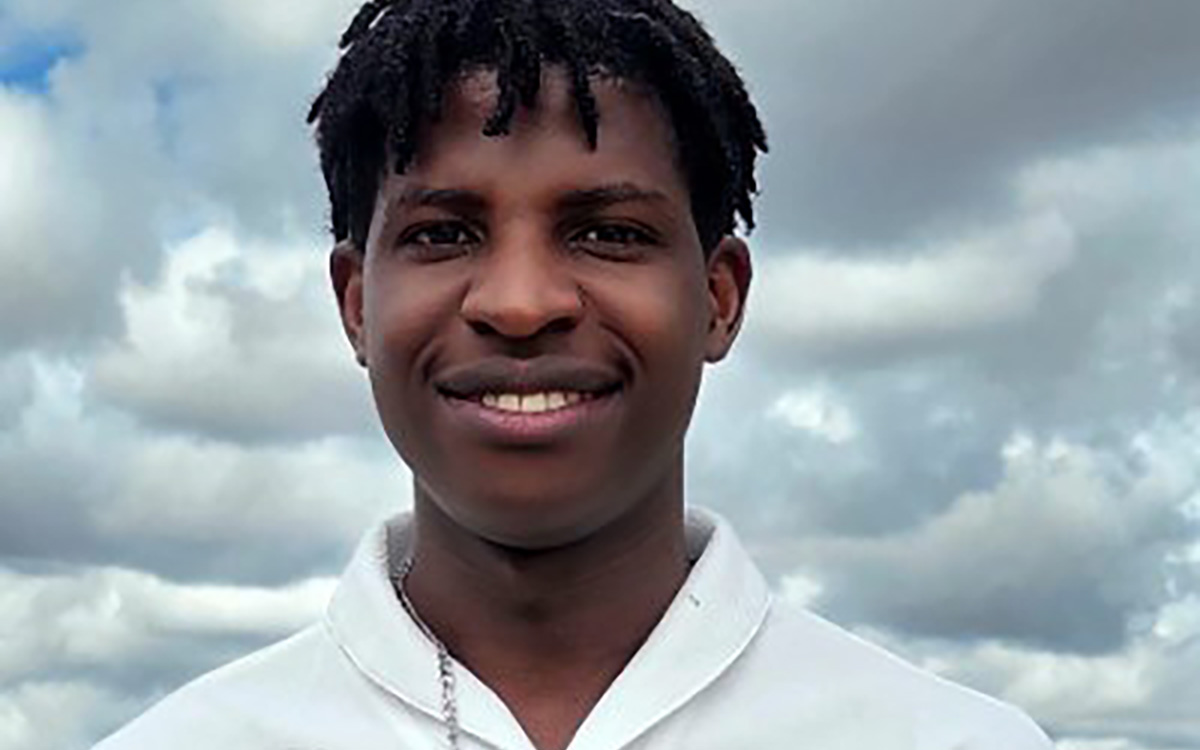
A prominent Ugandan activist who was stabbed outside his home earlier this year has asked for asylum in Canada.
Two men on motorcycles attacked Steven Kabuye, co-executive director of Coloured Voice Truth to LGBTQ Uganda, on Jan. 3 while he was going to work.
Kabuye posted a video to his X account that showed him on the ground writhing in pain with a deep laceration on his right forearm and a knife embedded in his stomach.
He spoke with the Washington Blade from Kenya on Jan. 8 while he was receiving treatment. Kabuye arrived in Canada on March 6.
Kabuye during an April 27 telephone interview with the Blade from Canada said Rainbow Railroad, a group that works with LGBTQ and intersex refugees, helped him “get away from the dangers that were awaiting me in Kenya and Uganda.” Kabuye said he asked for asylum in Canada because he “cannot return to either Uganda or Kenya.”
“The Ugandan government fails to get the culprits who wanted to end my life,” he said.
Kabuye told the Blade that Ugandan police officials threaten his colleagues when he publicly speaks about his case.
“Every time I come up and demand for the police to act out, they end up calling the colleagues of mine that remain in Uganda and intimidate them so they can scare me off, so they can make me pack up and keep quiet,” he said.
Ugandan President Yoweri Museveni last May signed his country’s Anti-Homosexuality Act that, among other things, contains a death penalty provision for “aggravated homosexuality.”
Canadian Foreign Minister Mélanie Joly described the law as a “blatant violation of human rights and fundamental freedoms of LGBTQ+ Ugandans.”
The U.S. has sanctioned Ugandan officials and removed the country from a duty-free trade program. The World Bank Group also suspended new loans to Uganda in response to the Anti-Homosexuality Act.
The Ugandan Constitutional Court last month refused to “nullify the Anti-Homosexuality Act in its totality.” A group of Ugandan LGBTQ activists have appealed the ruling.
“The previously concluded ruling did not make a difference,” said Kabuye.
Kabuye told the Blade he has an interview with Canadian immigration officials on Friday. He said he will continue to advocate on LGBTQ Ugandans from Canada.
“I’m very grateful to Rainbow Railroad,” said Kabuye. “They’ve still given me a chance to continue my advocacy.”
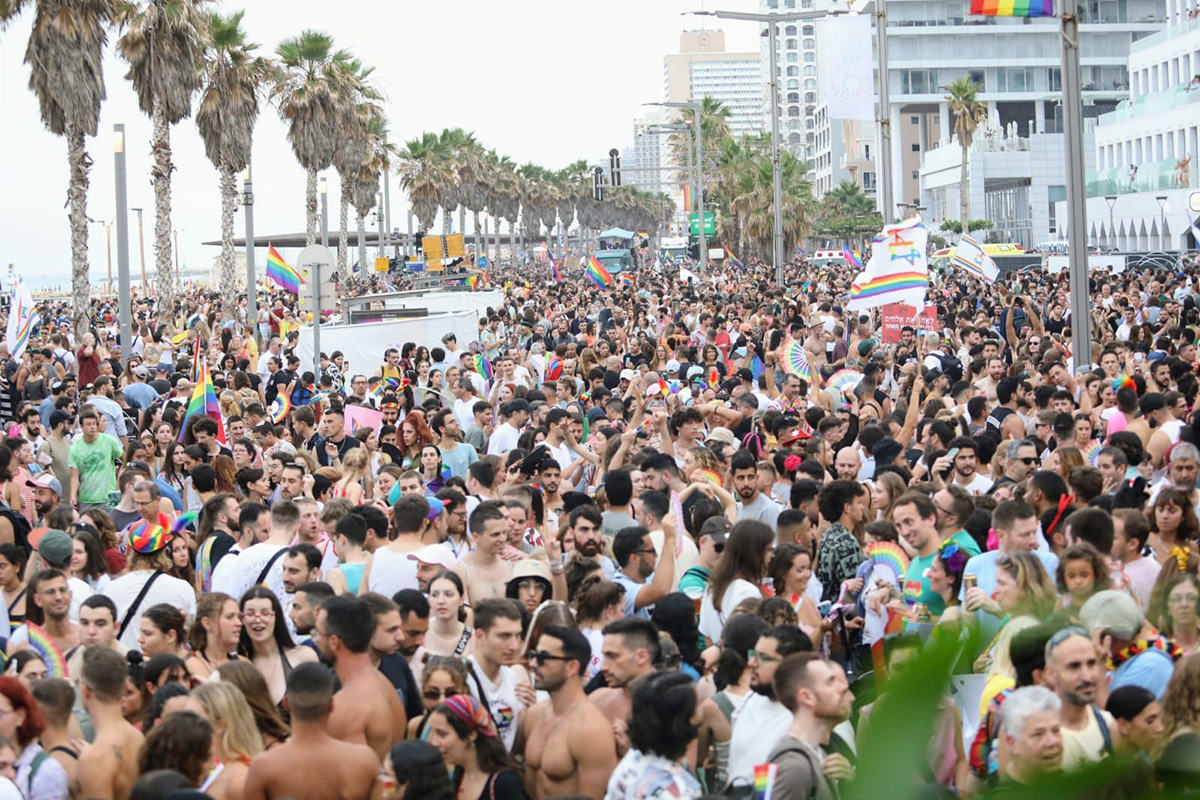
Tel Aviv-Yafo authorities on Wednesday announced the cancellation of Tel Aviv’s annual Pride parade.
The municipality said it will instead hold a rally as a sign of pride, hope, and freedom.
The decision was made after municipality representatives consulted with LGBTQ community organizations, LGBTQ party promoters and venue owners in the city. Possible alternatives to the Pride parade were discussed.
Mayor Ron Huldai in a post he published expressed the self-evident reasons for making the change.
“This is not the time for celebrations,” Huldai wrote. “In coordination with the organizations of the LGBTQ community, we decided that this year, instead of the Pride parade, we will hold a rally in Tel Aviv-Yafo as a sign of pride, hope, and freedom. 132 of our sons and daughters are still kidnapped in Gaza, the circle of bereavement is expanding every day, and we are in one of the most difficult periods of the State of Israel.”
“Tel Aviv-Yafo is the home of the LGBTQ community, it was and always will be,” he added. “Out of our great commitment to the community, this year we decided to divert part of the budget intended for the production of the Pride parade in favor of the activities of the ‘LGBTQ Center’ in Tel Aviv-Yafo. We feel the pain of the entire country, and at the same time we do not stop for a moment the fight for equality and freedom — for everyone and everything. See you at the Pride parade in June 2025.”
The coalition of LGBTQ community organizations welcomed the decision.
“We welcome the decision of the Tel Aviv Municipality not to hold the Pride parade as usual this year,” they said. “In these difficult days, when we are all in pain and grieving and when many of our brothers and sisters are not at home, either as evacuees from their homes or kidnapped in Gaza, and our hearts are not whole until they return. It is true that the Pride events will undergo adjustments to the times.”
“Since time immemorial, the Pride parade in Tel Aviv, in contrast to the other parades and events throughout the country, has been a celebration of freedom, love, and equal rights and now, in these difficult days, it is important to continue to fight for a free and tolerant future even if we avoid the celebration,” they added. “Participation in the various Pride events around the country is more important than ever and we call on all members and members of the gay community and everyone who believes in a liberal, freer, and more just society to get out of the house and take part both in the rally in Tel Aviv and in the various events for the fight for equality and tolerance across the country.”
-

 The White House3 days ago
The White House3 days agoEXCLUSIVE: White House Press Secretary Karine Jean-Pierre on speaking out and showing up
-
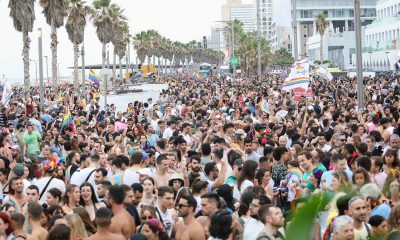
 Middle East2 days ago
Middle East2 days agoTel Aviv authorities cancel Pride parade
-
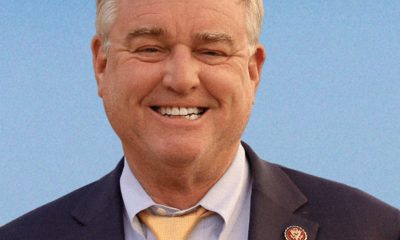
 Maryland4 days ago
Maryland4 days agoTrone discusses transgender niece
-

 The White House3 days ago
The White House3 days agoJane Rigby awarded Presidential Medal of Freedom



